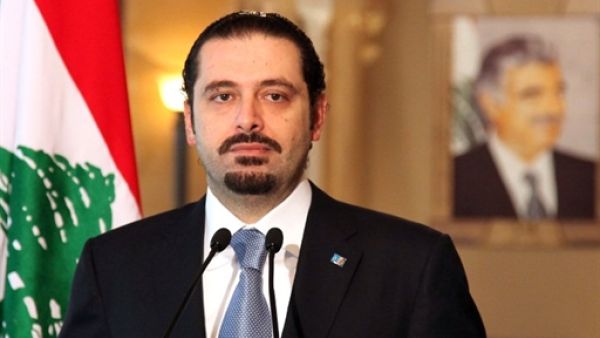Former military chief and Hezbollah ally Michel Aoun is one of Lebanon’s major political forces.
He’s also the longtime political rival of Saad Hariri, a former Prime Minister who’s the country’s most influential Sunni politician and a staunch opponent of Hezbollah.
It’s a complex enmity – and one that’s just been dramatically blown open in a twist that could transform the course of Lebanese politics. Hariri has announced that he’ll be backing Aoun as his choice to become President of the country.
The move has come as a shock in a nation mired in political turmoil. For two years and five months the country has been unable to elect a President to replace Michel Suleiman, with various political factions and alliances competing for power. Hariri himself is the leading opponent to Hezbollah: he led the March 14 Alliance against the group and its allies after the assassination of his father, Rafik Hariri, in 2005, and his cabinet was toppled in 2011 when Hezbollah and its allies resigned.
To say the announcement was controversial would be an understatement.
So essentially we may have a new axis: Aoun, Hariri, Geagea vs. Berri, Jumblatt, Franjieh. And Hezbollah in the middle, manipulating them.
— Michael Young (@BeirutCalling) October 20, 2016
Aoun is a racist anti-Syrian, anti-refugee, but pro-Syrian govt politician. Hariri (& by extension Saudi) now back him for presidency.
— Nader (@DarthNader) October 21, 2016
Sources quoted in Middle East Eye speculated that the move toward the group could be motivated by a financial crisis in Hariri’s businesses and the withdrawal of Saudi funding, leading to financial woes in Hariri’s Future Movement.
But Hariri announced Thursday that his support was an attempt to prevent the country falling into crisis, Al Jazeera reported, explaining that he hoped the move would "preserve the political system, reinforce the state, relaunch the economy, and distance us from the Syrian crisis"
Under complicated sectarian power sharing arrangements, the President of Lebanon must be a Christian – and Aoun, who has long held ambitions for the job, fits the bill. If he ascends to the role, Hariri will likely become Prime Minister, Reuters reported, under what may be a power-sharing arrangement.
Whether today’s development will change the years-long political stalemate in the country is unclear, however. Since Suleiman resigned in 2014 the country has made 32 attempts to appoint a new president – and failed every time. Already several key political figures have voiced their opposition to the possibility of a Aoun Presidency. Nabih Berri, who heads the Hezbollah-supporting Shia Amal Movement, said it could push the country into civil war.








